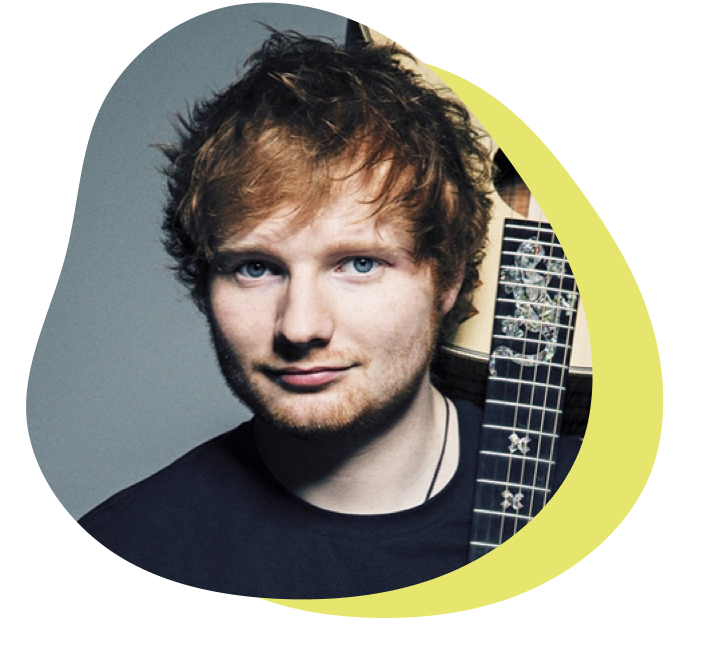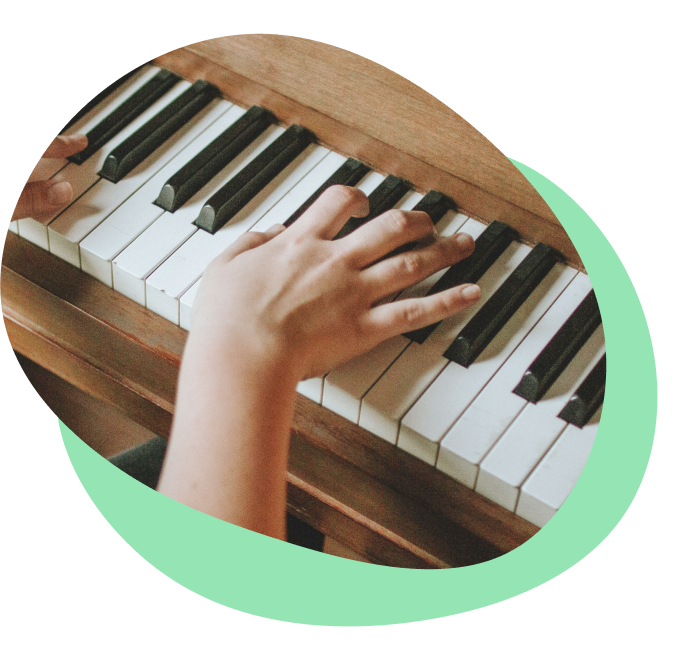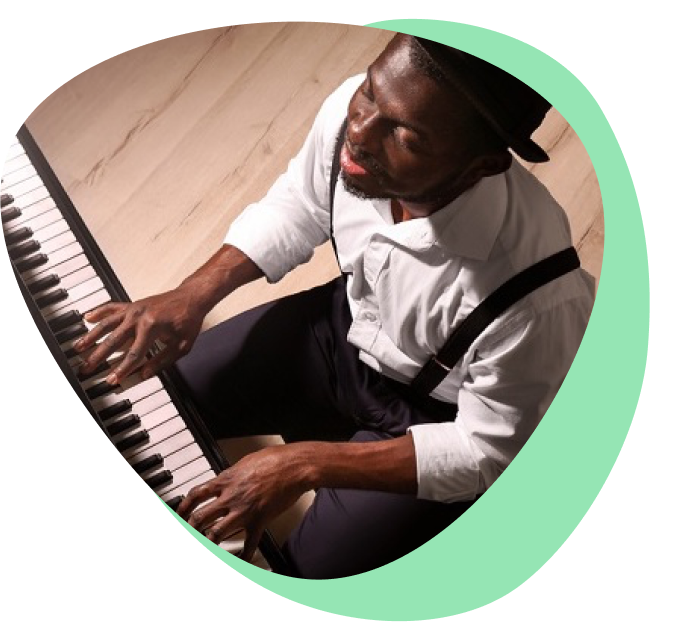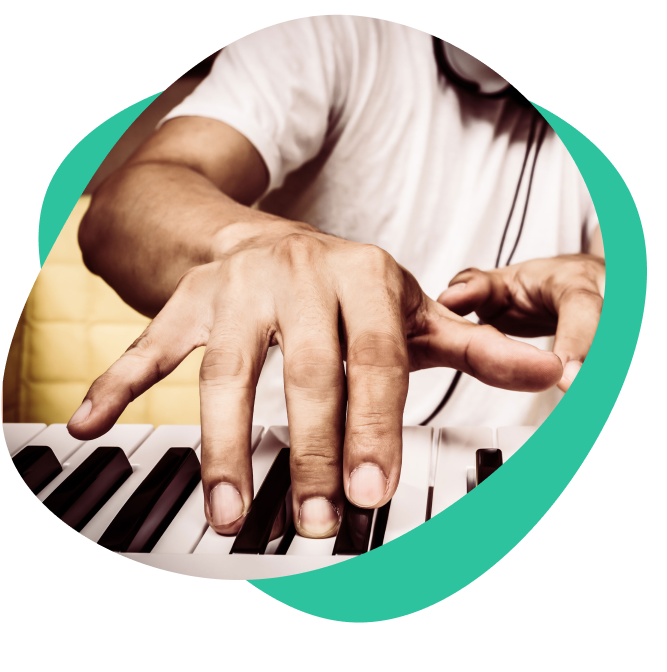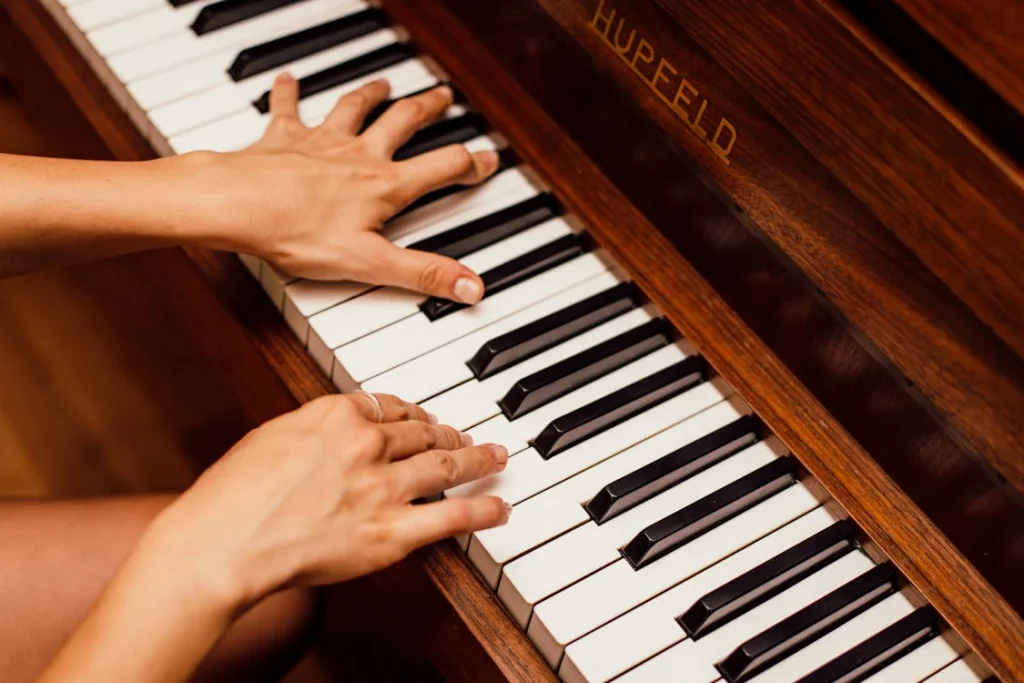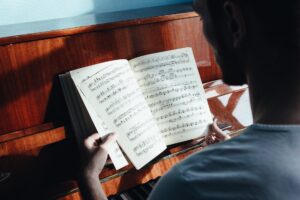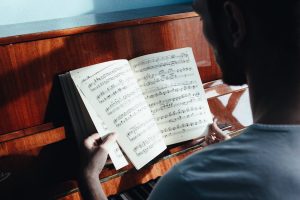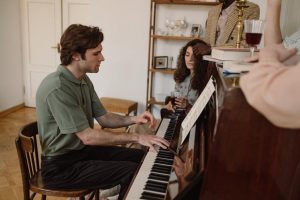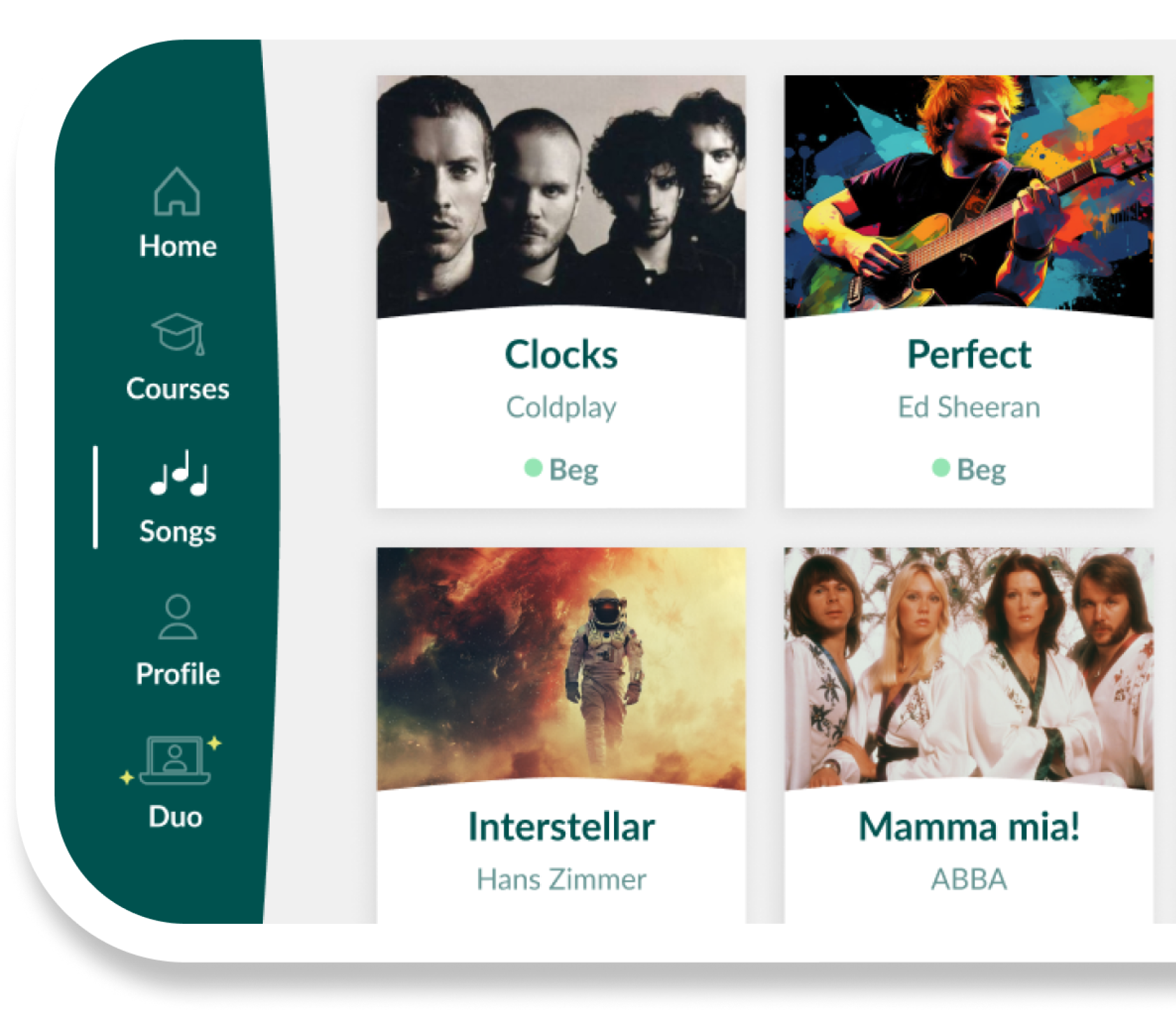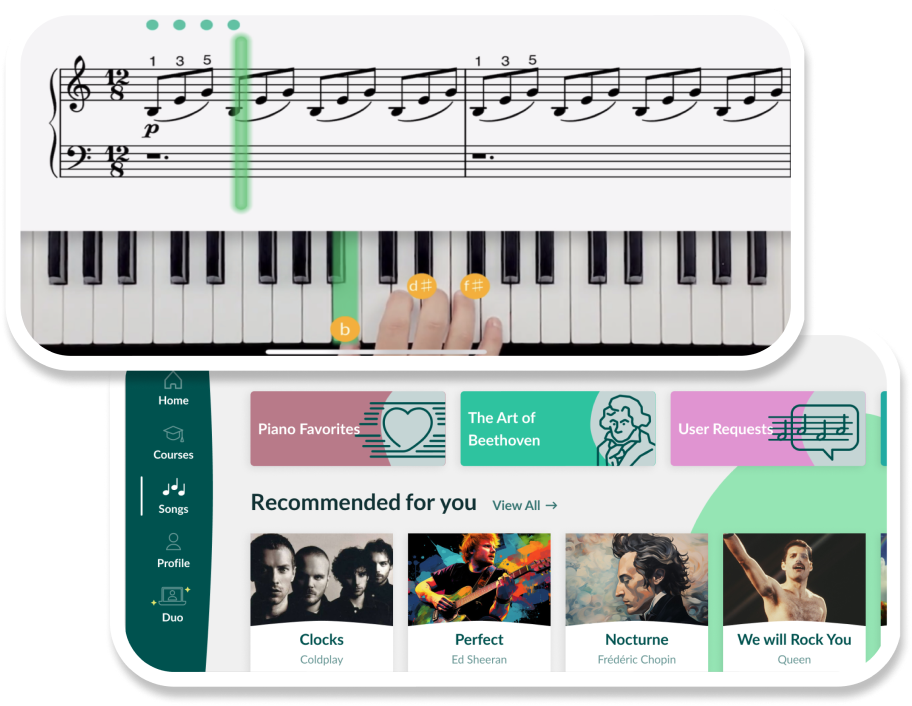As you begin to leave your teenage years behind and enter the decade of your twenties, you may find yourself interested in picking up a musical instrument. However, you might experience some doubts when you start learning to play an instrument like the piano when you are 20 or 21 years old. This can happen for a number of reasons, but mainly when you compare yourself to others who started earlier in life.
However, the truth is it is never too late to start playing music. Learning the piano at any age is an enjoyable and enriching experience and learning the instrument at 20 years old has its own set of advantages. Your life experiences can actually enhance your ability to learn the instrument!
There is so much more to learning to play music than developing technical skills. Music is about creativity and self-expression. No matter if you are 20, 25, or 55 do not let age be a barrier to starting piano. Now is always the best time to start!
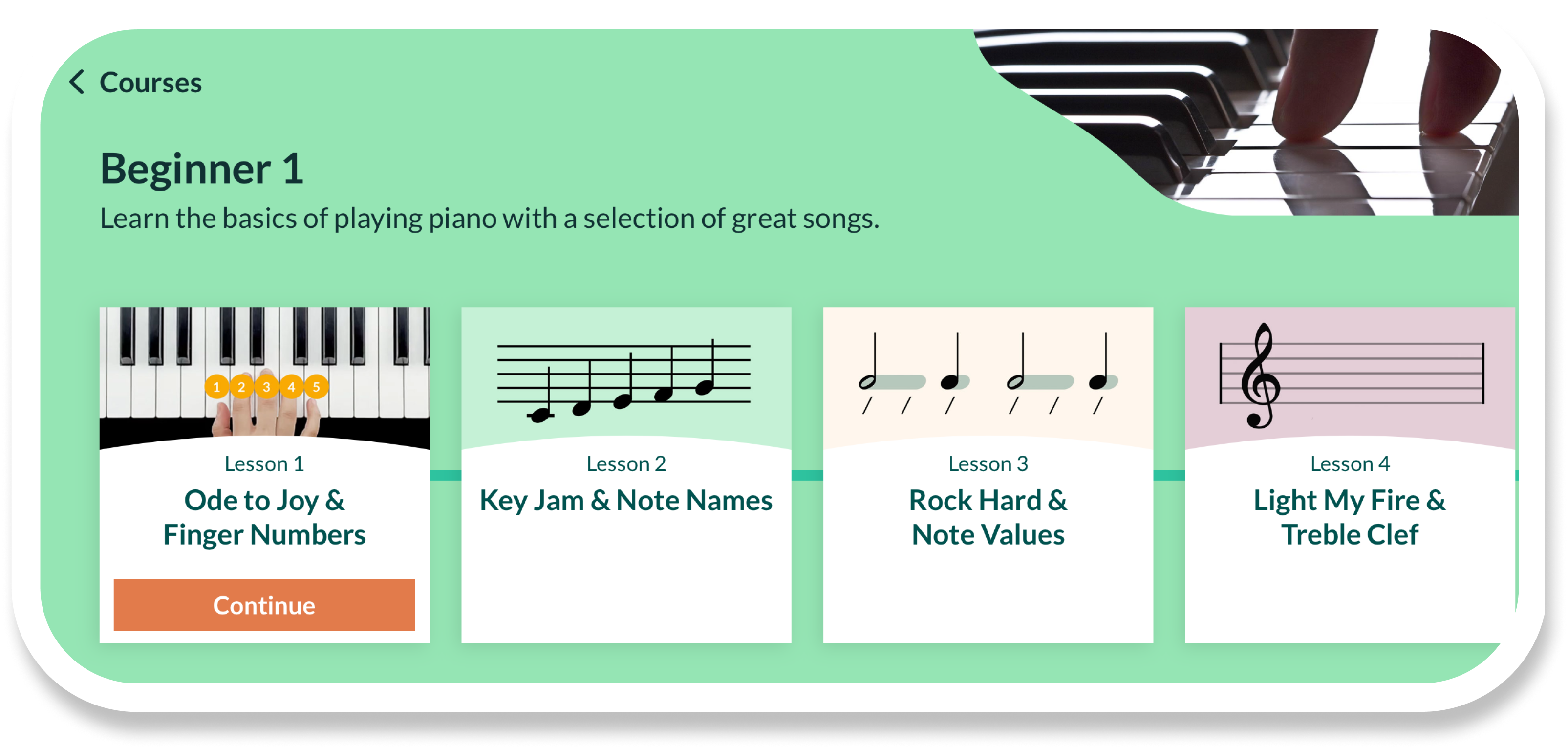
Breaking the myth of age limitations
The idea that mastery of the piano is the exclusive domain of child prodigies is an old and outdated idea. While it’s true that young brains absorb information like sponges, adult learners have their own superpowers: patience, discipline, and life experience.
A lot of people think that childhood is the best time to learn piano. But, this viewpoint overlooks the inherent potential of older beginners. While age certainly influences the learning process, it should not be viewed as a barrier but rather as a unique vantage point from which to embark on a musical journey.
Here’s why age shouldn’t deter you:
- Cognitive advantages: Adults possess cognitive abilities that aid in faster comprehension and analysis of music theory.
- Emotional maturity: Life experiences can enrich musical interpretation and expression.
- Time management skills: Adults often have better time management skills, allowing for consistent practice routines.
Benefits of learning piano in young adulthood
Starting your piano studies at 20 or 22 years old presents advantages that are unique to you and are often glanced over. Young adulthood is characterized by heightened brain plasticity, allowing for faster acquisition of new skills and information.
Furthermore, the emotional challenges of young adulthood can be effectively managed through the therapeutic outlet that piano playing provides, promoting mental well-being and emotional resilience.
Exploring the advantages of learning piano at 21 or 22 reveals numerous benefits:
- Enhanced brain plasticity: The brain’s ability to adapt and learn remains high during young adulthood, facilitating faster skill acquisition.
- Greater self-awareness: Young adults have a clearer understanding of their interests and goals, leading to more focused and dedicated practice.
- Stress relief: Playing the piano offers a therapeutic outlet for managing the stresses of young adulthood, promoting mental well-being.
Exploring the psychological impact
Learning the piano in young adulthood extends beyond the acquisition of musical skills; it also offers profound psychological benefits that enhance cognitive functions and emotional well-being.
Research indicates that engaging in music education stimulates various regions of the brain responsible for memory, attention, and problem-solving, leading to tangible improvements in cognitive abilities.
1. Cognitive benefits
One significant psychological impact of piano learning is its ability to enhance memory function. Through the repetition of musical patterns and sequences, piano practice strengthens neural connections associated with memory encoding and retrieval.
This cognitive exercise not only improves short-term memory but also enhances long-term memory consolidation, facilitating learning and retention of new information beyond the realm of music.
Moreover, piano playing requires sustained attention and concentration, which are essential cognitive skills cultivated through regular practice.
2. Enhances mental discipline
Focusing on intricate musical passages and coordinating hand movements instills a sense of mindfulness and mental discipline, sharpening attentional control and cognitive flexibility.
These benefits extend beyond the piano bench, enhancing academic performance, professional productivity, and overall cognitive resilience.
3. Therapeutic results
In addition to cognitive benefits, piano learning offers profound emotional and psychological rewards. Music has long been recognized as a powerful medium for emotional expression and regulation, providing a therapeutic outlet for processing complex emotions and reducing stress levels. Playing the piano allows individuals to channel their emotions into musical interpretation, fostering self-expression and emotional catharsis.
4. Boosting self confidence
Furthermore, engaging with music in a meaningful way fosters a sense of achievement and self-efficacy, bolstering self-confidence and self-esteem. As individuals progress in their piano studies and overcome challenges, they develop a sense of mastery and competence, which transcends musical proficiency and permeates other areas of life. This sense of accomplishment fuels intrinsic motivation, driving continued engagement and dedication to musical pursuits.
5. Promoting social interactions
Beyond individual psychological benefits, piano learning also promotes social connection and cohesion within communities. Whether through ensemble playing, group lessons, or collaborative performances, music brings people together, fostering a sense of belonging and camaraderie. Shared musical experiences create bonds that transcend social barriers, promoting empathy, understanding, and mutual appreciation among individuals from diverse backgrounds.
Exploring the psychological impact of learning the piano in young adulthood reveals myriad cognitive, emotional, and social benefits. From enhancing cognitive functions and emotional regulation to fostering social connection and cohesion, piano learning enriches lives in profound ways.
You can embrace the transformative power of music and unlock more of your own potential for personal growth, creativity and well being.
Community insights: Is it too late to learn piano at 20? A look at Quora discussions
On the Quora forum, the question “I’m 20 years old and would like to learn to play the piano. Is it too late for me? If not, where would I start?” sparked a discussion. Here’s a summary of the perspectives shared by users:

Age is not a barrier
Many respondents emphasized that it’s never too late to start learning the piano. They highlighted that unless your hands are physically deformed, you can begin at any age. The consensus was that passion and dedication matter more than age.
Realistic expectations
While age isn’t a barrier, there’s a realistic understanding that achieving an elite level of piano playing takes time. Starting at 30 might still require 10, 15, or even 20 years to reach a concert pianist level. Patience and persistence are key.
Volunteer and experiment
Volunteering is a great way to gain experience in different fields without committing to specific jobs. It allows you to “try on different hats” and discover what you enjoy. Remember, you’re still young, and the journey of self-discovery is ongoing. Whether it’s piano or any other pursuit, follow your interests, experiment, and enjoy the process!
Challenges faced by adult learners
While age brings certain advantages, adult learners may encounter specific challenges on their journey to piano mastery. Chief among these challenges is the constraint of time. Balancing piano practice with work, education, or other responsibilities can be demanding, requiring careful time management and prioritization.
According to YouTuber Corey Lennox in his YouTube video Am I Too Old To Learn Piano? , he explains that it is not about when you start learning the piano, but the time you put into learning it.
Moreover, adult learners may struggle with impatience and self-doubt as they compare their progress to that of younger learners.
Overcoming these challenges requires resilience, patience, and a willingness to embrace the learning process. Some of these challenges include:
- Time constraints: Balancing piano practice with work, education, or other responsibilities can be demanding.
- Patience and persistence: Progress may seem slower compared to younger learners, requiring patience and perseverance.
- Overcoming self-doubt: Adults may harbor insecurities about their abilities, hindering progress.
Strategies for success
There are many ways you can plan and prepare for your own success as an adult learning the piano.
Establishing a realistic practice schedule is paramount, ensuring consistent progress even with limited time availability. Seeking guidance from a qualified instructor can provide personalized instruction and motivation tailored to individual learning styles and goals. Embracing the learning process, focusing on gradual improvement rather than immediate perfection, is crucial for maintaining motivation and momentum.
Here’s how 20 to 22-year-olds can maximize their piano learning journey:
- Establish a realistic practice schedule: Set aside dedicated time for consistent practice, even if it’s just a few minutes each day.
- Embrace the learning process: Focus on gradual improvement rather than immediate perfection, celebrating small victories along the way.
- Seek guidance from a qualified instructor: A skilled teacher can provide personalized instruction and motivation tailored to your learning pace and goals. For instance, using a platform like Skoove, you can seamlessly master the art of piano playing online, with expertly crafted lessons to get your groove on.
Learning the piano at 20-22 years old is not only feasible but also rewarding. While challenges may arise, the journey offers opportunities for personal growth, creative expression, and musical fulfillment.
Remember, it’s never too late to unlock the melodies within you and embark on a harmonious journey of self-discovery.
Author of this blog post:
Susana Pérez Posada

With over seven years in piano education and a deep passion for music therapy, Susana brings a unique blend of expertise to Skoove. A graduate in Music Therapy from SRH Hochschule Heidelberg and an experienced classical pianist from Universidad EAFIT, she infuses her teaching with a holistic approach that transcends traditional piano lessons. In her writings for Skoove, Susana combines her rich musical knowledge with engaging storytelling, enriching the learning experience for pianists of all levels. Away from the piano, she loves exploring new places and immersing herself in a good book, believing these diverse experiences enhance her creative teaching style.
Published by Lidya Hovan from the Skoove team



